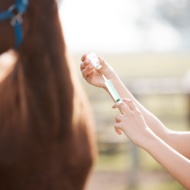Big Butterfly Count 2024 begins
Sir David Attenborough is among those urging the public to take part.
The public are being asked to take part in this year’s Big Butterfly Count to help scientists understand how climate change is affecting butterflies.
This year’s count is running from Friday, 12 July until Sunday, 4 August. To take part, participants need to spend 15 minutes in a sunny spot and record the number and type of butterflies and day-flying moths that they see. It is open to anyone in the UK.
The annual count is organised by the charity Butterfly Conservation and provides information that allows scientists to monitor butterfly populations.
Data from the last 50 years has shown that many species are spreading northward, including the peacock, comma, and holly blue. The changing climate is allowing them to survive in areas that would previously have been too cold.
However, the same trend is having a negative impact on the spread of species that prefer a cooler climate. The Scotch argus is one species of butterfly that is becoming less common in more southern regions.
Zoë Randle, senior surveys officer at Butterfly Conservation, said: “Species that rely on particular habitats aren’t able to move as freely as our garden favourites.
“This means that if climate change continues, they could become trapped in isolated fragments of remaining habitat, unable to move and with their food plants at risk from adverse weather conditions, facing the very real threat of extinction.”
The Big Butterfly Count is the largest citizen science project of its kind. Last year, more than 135,000 counts took place.
Sir David Attenborough, president of Butterfly Conservation, added: “The UK is a nation of amateur naturalists, and we have a proud tradition of celebrating and studying our wildlife.
“Every single person taking part in the Big Butterfly Count helps to build a picture of how butterflies are faring and how we can best conserve them.”
More information about taking part can be found on the Big Butterfly Count website.
Image © Shutterstock



 Zoetis UK has apologised for a supply shortage of Equip Artervac, caused by a manufacturing issue.
Zoetis UK has apologised for a supply shortage of Equip Artervac, caused by a manufacturing issue.